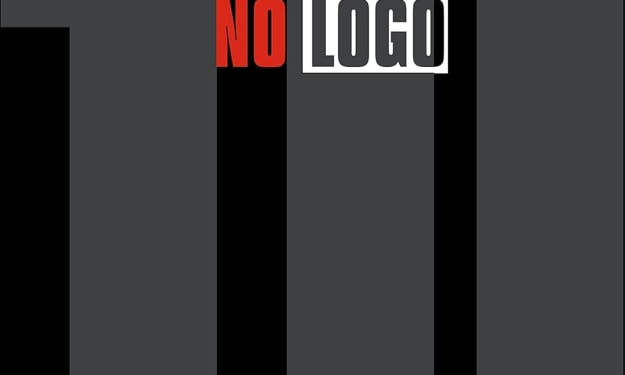'Babyteeth' Review –– A Very Funny Tragedy
A much needed breath of fresh air for the Child with Terminal Illness–Doomed Romance sub-genre.

‘Laughter for me can do only this: stretch what is tense to the point where it is unendurable… That laughter in the face of the unendurable is risky for literature, and it’s that laughter that interests me the most.’
“The last thing to determine conclusively is whether you’re in a comedy or a tragedy. Tragedy, you die. Comedy, you get hitched.”
Stranger Than Fiction (dir. Marc Forster, 2006)

I keep hearing Babyteeth (dir. Shannon Murphy, 2019) is a Comedy. It’s not. It is, unquestionably, a Tragedy. Although Tragedy and Comedy may appear to occupy opposite ends of a spectrum, the very best of the genres are found rubbing up against each other. Shakespeare is the OG, but when it comes to cinema I challenge you not to guffaw in Schindler’s List (dir. Steven Speilberg, 1993), surely few films are as joyous as La Vita é Bella (dir. Roberto Benigni, 1997), and as humorous as all Diablo Cody’s movies are they are equally as pungently bitter.
Tragedies are not only often humorous because emotional range is important –– nothing feels less tragic than being relentlessly hammered with sadness –– but, above all, the more you laugh, the rockier the descent into desolation. As Elena Ferrante says, there is something unendurable about the laughter that occurs in the face of overwhelming devastation; it is the manifestation of an emotional short-circuiting.
But the simplest and most obvious way to determine whether you are watching (or reading or living in) a Tragedy or a Comedy is the ending. Babyteeth might well be classified as a Romance, or a Drama, alongside Comedy. It is this emotional scope that makes the film so enjoyable, in addition to building you up for its heartbreaking knockdown. You know how this one will end, and yet, when it happens, it is so completely gutting you feel thoroughly ill-equipped. As I shook with tears in the cinema, the middle-aged guy behind me laughed. In Babyteeth, both the characters and the audience are united in mishandling its tragic outcome. But that is the point, few things in life are more abhorrently mind-bending than young people knowing they are soon to die.
Babyteeth is a rift on the Child with Terminal Illness–Doomed Romance sub-genre, which has grown increasingly popular in the past decade. Whether this film is closer to the reality of living with dying, I don’t know – but Babyteeth is undoubtedly the much needed cinematic breath of fresh air when it comes to this narrative arc.
Milla (Eliza Scanlen) is dying. Not only does she have cancer, but, we first meet her standing on a train platform, intensely watching the tracks: she is at the very least seriously contemplating jumping, at the worst actually preparing to. So not only is Milla dying, Milla wants to die. But she doesn’t jump, because as the train comes in she is jostled to one side, “saved” by the rangy, tattoo-faced Moses (Toby Wallace). Moses, high on drugs (and his characteristic joie de vivre) stands swaying, arms overhead, in the wind of the moving train that hurtles by an inch from his face. And so starts Milla and Moses’ danse macabre. Because, if death has passed Milla by this time, why not bide her time with sex, or lust, or whatever it is that catches her eye in Moses. It is not love at first sight for either of them –– but it is something significant for Milla, and for Moses it is a heady drug-induced infatuation followed by the allure of Milla’s comfortably middle-class wealth. But as the film progresses he will fall for her, money and drugs aside. If you are a romantic, you might say at that moment on the platform they had a Connection. But I wonder if Milla saw an opportunity; perhaps she had seen The Fault in Our Stars and decided a doomed romance was befitting of a Gen Z-er in her situation. Or, perhaps, in Moses vitality that constantly toes the line of destruction, she saw another form of living with dying.
And so Milla’s pursuit begins.
The age gap is a thing, and by society’s standards, we are right to fear that 23-year old Moses is exploiting Milla (for the sake of the film she is 16, but in the play Babyteeth is adapted from she is 14. And Moses is 25). Not only that, but as someone who misuses and deals drugs, we know it is as much the money and fruit bowls of pills lying around the house (cancer + a psychiatrist father who is incredibly liberal with his scripts, especially when it comes to his wife = a lot of drugs in the house) that keeps Moses showing up at Milla’s door. But, drugs and society aside, if anything Milla is exploiting Moses in her relentless pursuit of him. She knows he will lose her, but she wants him because he signifies something. And that something is not sex, but death; death in the form of living so fully that you are constantly testing survival’s boundaries.
Like when she stays out all night with him, in a glorious light-speckled, neon-hued sequence that bleeds into a cold blue daybreak, where she sleeps rough, is abandoned by Moses, and ends up contracting pneumonia. Moses is danger, not in a brooding, violent way, but as a result of his fun time, child-like recklessness. And Moses is destruction because he will always have to choose between Milla and drugs; because as we see with his mother, sustaining a relationship and a drug user is hard… unless one enables the other.
In amongst the off-beat comedic charm of the evolving romance, the film has a graver MO as a nuanced critical commentary on drug use and addiction, pitting off the medically sanctioned kind against street obtained ones. Milla’s dad Henry (played by Ben Mendelsohn at his finest), relentlessly abuses his prescription pad and therefore his power as a doctor. Yet, it easy to have sympathy with his choices to shoot up with morphine between clients as his daughter’s death looms; or, to keep his wife medically buffered against the sheer force of this reality; and to strike a bargain with Moses, where he grants his daughter’s dying wish of securing Moses’s companionship in exchange for MD procured drugs. It is not so easy to have sympathy with a 20-something year old who has been kicked out by his mother and must sell and use drugs to support himself.
The film not only touches on the medically fuelled opioid crisis (which is everywhere, not just the US where it is most severe), but, having lived on and off in Australia since 2017, I found there to be a distinctively Australian flavour to the narrative around the socially discriminatory term “junkie”, which Moses epitomises. Derogatory language and attitudes towards drug misusers are not unique to Australia, of course. Still, there is a certain lack of nuance and compassion in the perspectives and rhetoric around substance misuse in Aus, in order to avoid addressing the gross socio-economic, gender and race imbalances that fuel it.
There is much to like about Babyteeth, and rather satisfyingly it feels like a film that achieved what it set out to do. Yes, it is well cast, well written, and visually on point (my only real critique is the unnecessary use of subtitled chapter headings that added nothing, except an obtuse imploration to be regarded under the lens of auteurship). But above all Babyteeth tricks you into considering some of the graver things in life. In amongst the madness and sadness, mayhem and joy, there is a body of people desperately trying to navigate life overshadowed by impending death.
Babyteeth is currently in cinemas in Australia, streaming on Netflix in the UK, and on Hulu in the US.






Comments
There are no comments for this story
Be the first to respond and start the conversation.